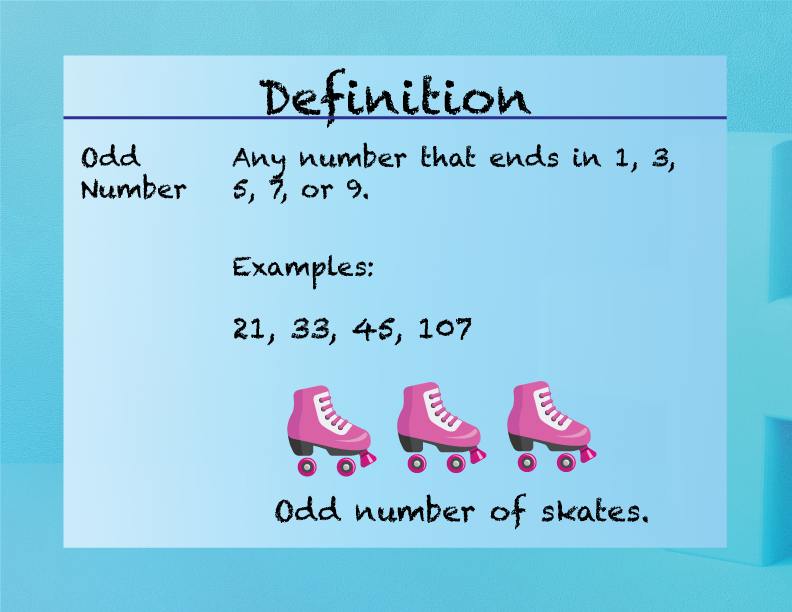
Display Title
Elementary Math Definitions--Addition Subtraction Concepts--Odd Number
Display Title
Odd Number

Topic
Addition and Subtraction
Definition
An odd number is an integer that is not divisible by 2 without a remainder.
Description
An odd number is an integer that cannot be divided by 2 without leaving a remainder. Examples of odd numbers include 1, 3, 5, 7, and 9. This concept is fundamental in mathematics and helps in understanding number patterns and properties.
In mathematics, odd numbers are important for various operations, including addition, subtraction, multiplication, and division. Understanding odd numbers helps students recognize patterns and develop problem-solving skills. For example, the sum of two odd numbers is always even, and the product of an odd number and an even number is always odd.
In real-world applications, odd numbers are used in various scenarios, such as dividing objects into groups, determining quantities, and more. For example, if you have 7 apples and want to divide them equally among 2 friends, you will have 1 apple left over, showing that 7 is an odd number.
Teacher's Script: "Let's talk about odd numbers. An odd number is a number that cannot be divided by 2 without any leftovers. For example, 5 is an odd number because if we try to divide it into 2 groups, we will have 1 left over. Can you think of other odd numbers?"
For a complete collection of terms related to Addition and Subtraction click on this link: Addition and Subtraction Collection
| Common Core Standards | CCSS.MATH.CONTENT.1.OA.B.3, CCSS.MATH.CONTENT.2.NBT.B.9 |
|---|---|
| Grade Range | 1 - 3 |
| Curriculum Nodes |
Arithmetic • Addition • Addition Expressions and Equations |
| Copyright Year | 2021 |
| Keywords | addition, subtraction, equation, place value |